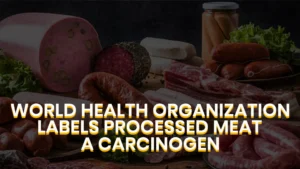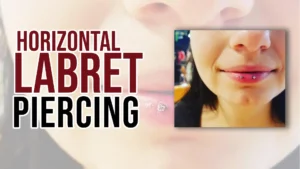Introduction
Natural remedies for managing health conditions have gained significant interest in recent years. Among these remedies, beetroot juice has emerged as a potential contender for its supposed blood pressure-lowering effects. While medical treatments for hypertension remain the gold standard, incorporating beetroot juice into conventional approaches has sparked debates among healthcare professionals. Whether doctors should prescribe beetroot juice for blood pressure management calls for a careful examination of scientific evidence, potential benefits, and possible limitations. This essay explores the arguments surrounding this topic, delving into the research supporting beetroot juice’s impact on blood pressure, considering the challenges of prescribing natural remedies, and ultimately aiming to arrive at a reasoned conclusion on its appropriateness as an adjunct therapy for hypertension.
What is Beetroot?
A plant is a beetroot. The leaves and roots are both utilized medicinally. As vegetables, beetroot and leaves are also consumed. The primary purpose of beetroot is to improve athletic performance. No solid scientific evidence supports its use for liver illnesses, treating high blood pressure, easing post-exercise muscle soreness, or other conditions.
How does it function?
Chemicals in beets may lower cholesterol and edema. Beets can also raise the body’s levels of nitric oxide. Nitric oxide may impact blood vessels, potentially lowering blood pressure and facilitating physical activity.
Properties of Beetroot Juice
Beetroot juice may have various biological effects that can aid in treating several ailments.1 The following are some of the characteristics of beetroot juice:
- It might contain an antioxidant.
- It might be anti-microbial (slows down the development of microorganisms).
- It might be a robust anti-fungal substance.
- It might be a potent anti-inflammatory.
Uses and Effectiveness of Beetroot Juice
Athletic Ability
Some people may perform better during aerobic exercise after consuming beetroot juice. The amount or frequency of beetroot juice consumption, however, is unknown. Additionally, any benefit for elite athletes may be insignificant.
Muscle Aches brought on by Exercising
After a vigorous workout, drinking beetroot juice many times daily for around 48 hours may help lessen muscle stiffness.
Heart Illness
According to preliminary studies, persons with heart disease who take red beetroot extract for two weeks can lower their total cholesterol, low-density lipoprotein (LDL or “bad”) cholesterol, and triglycerides.
Elevated Blood Pressure
Some people may experience a drop-in blood pressure after consuming beetroot juice. However, it doesn’t appear effective in those with high blood pressure.
Hypertriglyceridemia
Hypertriglyceridemia is the medical term for high blood triglyceride levels: Beetroot and hawthorn supplements lower triglycerides in heart disease-risk individuals. However, consuming beetroot leaves doesn’t appear to lower triglycerides.
Obesity
Taking beetroot leaf for four weeks doesn’t assist in weight loss in individuals who have already received nutritional counselling.
Pregnancy Blood Pressure that is High
Early studies indicate that consuming beetroot juice does not reduce blood pressure in expecting mothers with high blood pressure.
Pulmonary Hypertension
Pulmonary hypertension is high blood pressure in the arteries that supply the lungs. According to preliminary studies, drinking beetroot juice doesn’t reduce adult pulmonary hypertension.
Raynaud Syndrome
Raynaud syndrome is a painful reaction to cold, especially in the fingers and toes. According to preliminary studies, consuming beetroot juice for two weeks does not appear to lessen pain in the fingers or toes experienced by Raynaud syndrome sufferers when exposed to cold temperatures.
Potential Side Effects
When consumed orally, beetroot is likely safe for most people in the serving sizes that are common in foods. For most people, beetroot is safe when ingested orally in therapeutic doses. Stools or urine coloured pink or crimson due to beetroot. However, this poses no risk. Beets may contribute to low calcium levels and kidney disease, according to some worries. However, this has yet to manifest in individuals.
Precautions
When consumed orally, beetroot is LIKELY SAFE for most people in the serving sizes that are common in foods. Beetroot is POSSIBLY SAFE for most people when ingested orally in therapeutic doses.
Stool or Urine Color
Stools or urine colored pink or crimson due to beetroot. However, this poses no risk. Beets may contribute to low calcium levels and kidney disease, according to some worries. However, this has yet to manifest in individuals. There isn’t enough trustworthy information to determine whether beetroot is safe to take as a medicine when pregnant or breastfeeding. Keep to the recommended food levels to be safe.
Renal Disease
Consuming excessive amounts of beets may exacerbate renal disease.
Role of Beetroot Juice on Blood Pressure
According to a study, beetroot juice lowers high blood pressure. According to research, drinking a cup of beetroot juice daily could considerably reduce the blood pressure of persons with high blood pressure. It was discovered that high blood pressure patients who had 250 ml of beetroot juice daily had their blood pressure levels back to “normal.” High blood pressure is a crucial risk factor for cardiovascular disease, which can result in heart attacks or strokes. Nitrates, a chemical present in high concentrations in beets and other leafy green vegetables like kale and cabbage, are responsible for the impact.
How does Doctor Prescribe its Dose?
Doctors prescribe medication doses based on several factors. First, they consider the patient’s age, weight, and overall health status. Next, they assess the severity of the treated condition and any underlying medical conditions. The drug’s pharmacokinetics and pharmacodynamics are also considered, as well as its recommended dosage range and frequency. Additionally, the doctor thinks about the patient’s response to previous treatments, potential drug interactions, and any allergies or sensitivities.
In some cases, genetic factors may also influence dosing decisions. The aim is to provide an effective dose that minimizes side effects and achieves the desired therapeutic outcome. Regular monitoring and adjustments may be made to ensure the treatment remains safe and effective over time.
Do Doctors Prescribe Beetroot Juice for Blood Pressure?
As of my last update, beetroot juice has been studied for its potential effects on blood pressure, and some doctors may consider it part of a comprehensive treatment plan for hypertension. However, it’s essential to remember that medical practices and recommendations may have evolved since then, and it’s best to consult a healthcare professional for the most up-to-date advice. Here are some points to consider regarding doctors and beetroot juice for blood pressure:
Research
Several studies have shown that beetroot juice contains nitrates that may help lower blood pressure due to their potential to increase nitric oxide levels in the body, which can dilate blood vessels.
Complementary Approach
Some doctors may view beetroot juice as a complementary approach to traditional treatments for blood pressure management.
Individual Variations
Prescribing beetroot juice as a remedy for blood pressure may depend on individual patient characteristics, such as overall health status, medication interactions, and existing medical conditions.
Dosage and Purity
Doctors may consider the appropriate dosage and purity of beetroot juice to ensure its effectiveness and safety.
Monitoring
Patients using beetroot juice for blood pressure may require regular monitoring to assess its impact and adjust treatment plans accordingly.
Lifestyle Modifications
Doctors might recommend beetroot juice alongside lifestyle modifications such as a balanced diet, exercise, stress management, and medication adherence.
Remember, discussing any potential changes to your treatment plan with a qualified healthcare professional is essential to ensure the best possible outcomes for your specific health needs.
Conclusion
In conclusion, whether doctors should prescribe beetroot juice for blood pressure management remains a complex and nuanced issue. The available scientific evidence suggests that beetroot juice may benefit blood pressure due to its nitrate content, promoting vasodilation. However, caution is warranted, as research on the long-term efficacy and safety of using beetroot juice as a prescribed treatment for hypertension is still limited. Additionally, individual response variations and potential drug interactions necessitate careful consideration. While beetroot juice can be an appealing complementary approach to conventional hypertension treatments, it should not replace evidence-based medical interventions. Therefore, doctors should approach beetroot juice prescription prudence, considering each patient’s unique health status, preferences, and needs while encouraging further research to understand its role in blood pressure management better.





